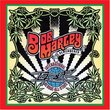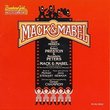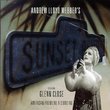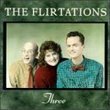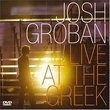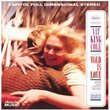| All Artists: Ludwig van Beethoven, David Zinman, Zurich Tonhalle Orchestra, Yefim Bronfman Title: Beethoven: Piano Concertos Nos. 3 & 4 Members Wishing: 0 Total Copies: 0 Label: Arte Nova Classics Original Release Date: 1/1/2005 Re-Release Date: 9/13/2005 Genre: Classical Styles: Forms & Genres, Concertos, Historical Periods, Classical (c.1770-1830), Instruments, Keyboard, Symphonies Number of Discs: 1 SwapaCD Credits: 1 UPC: 723721178758 |
Search - Ludwig van Beethoven, David Zinman, Zurich Tonhalle Orchestra :: Beethoven: Piano Concertos Nos. 3 & 4
 | Ludwig van Beethoven, David Zinman, Zurich Tonhalle Orchestra Beethoven: Piano Concertos Nos. 3 & 4 Genre: Classical
Born in Tashkent, Uzbekistan in 1958, Yefim Bronfman emigrated to Israel at the age of 13 and later to the U.S., where he pursued his training at the Juilliard School and the Marlboro and Curtis Institutes under Rudolf Ser... more » |
Larger Image |
CD DetailsSynopsis
Album Description Born in Tashkent, Uzbekistan in 1958, Yefim Bronfman emigrated to Israel at the age of 13 and later to the U.S., where he pursued his training at the Juilliard School and the Marlboro and Curtis Institutes under Rudolf Serkin, Rudolf Firkusny and Leon Fleisher. Bronfman celebrated his international début in 1975, accompanied by the Montreal Symphony Orchestra under Zubin Mehta. He soon acquired an excellent reputation as a pianist on the stages of the world?s major concert halls. Highlights of recent years include concerts with the Berlin Philharmonic, the Chicago Symphony and the Cleveland Orchestra, the Staatskapelle Dresden, the Gewandhaus Orchestra Leipzig, the Concertgebouw Orchestra Amsterdam and the Vienna Philharmonic. Yefim Bronfman also gives regular piano recitals in the leading concert halls of the United States, Europe and the Far East. As a chamber musician, he has collaborated with the Emerson, Cleveland, Guarneri and Juilliard Quartets. Other! long-term musical partners include Emanuel Ax, Yo-Yo Ma, Joshua Bell, Lynn Harrell, Shlomo Mintz and Pinchas Zukerman. Yefim Bronfman became an American citizen in 1989. Born in 1936, American conductor David Zinman has risen to the pinnacle of his career in the last decade. After bringing the Baltimore Symphony to major status, he became musical director of the Aspen Music Festival and then took the helm of Zurich?s beloved Tonhalle Orchestra. Zinman?s discography of some 100 recordings have won five Grammys and two Grands Prix du Disque. Founded in 1868, the Zurich Tonhalle Orchestra is Switzerland?s oldest symphony orchestra. Today it gives over 90 concerts each season featuring more than 50 different programs with the world?s leading conductors and solo artists. David Zinman sees Piano Concerto No. 3 ? the only one in a minor key ? as a kind of "Eroica" for piano and orchestra. Just as Beethoven opened the door to an entirely new symphonic world with his third symphony, the Eroica, he also broke new ground with his third piano concerto. For Yefim Bronfman, the Fourth is the concerto "with the broadest emotional spectrum, and at the same time possibly the most dramati." Similar CDsSimilarly Requested CDs
|
CD ReviewsZinman, Tonhalle Zurich, & Bronfman=Athletic, Brilliant Beet Dan Fee | Berkeley, CA USA | 11/02/2005 (5 out of 5 stars) "Okay, so let's get right to the bottom line: Get this CD right away. No matter who else already sits on your fav shelf for this music, you will find it quite easy to add this new recording of the Beethoven 3rd & 4th piano concertos. Cheap price, too. But nothing cheap, nothing cheap at all about either the recorded sound, or the quality of these performances. If you have heard - and liked - the approach that Zinman & Tonhalle took to their prize-winning set of the complete Beethoven Symphonies (which deservedly earned the German record critics prize, and is also at budget prices on Arte Nova) - you can settle into your home system, or mp3 player, or car stereo for lots more of that same, Beethovenish vitality. To recap. Zinman & Tonhalle have been influenced by all the paths opened up in the period instrument performances of baroque and classical music over the past five or six decades; without really having to play on gut strings and period instruments. So what's left? Well, somehow Zinman & Tonhalle manage their Beethoven with clarity, wit, punchy phrasing, and the wide open humanism that are the hallmarks of Beethoven's musical personality. There is not one ounce of romanticized fat in any of these Zinman-Tonhalle versions of the symphonies, and that is all to the good, since Beethoven is not at all confined to what the nineteenth century made out of him and made out of his music. In addition to the clarity, the tonal transparency that period peformance suggests, Zinman-Tonhalle also give us the rough-hewn punning, the startlingly clear and high musical intellect, and the energy that fairly bursts from Beethoven's unprecedented approach to both harmony and rhythm. Listening to Beethoven played this way, you easily credit his supposed reputation as the finest improviser of his era. Into this notable Beethoven mix comes pianist Yefim Bronfman. He certainly has his chops. More to the point, Bronfman and Zinman-Tonhalle are worthy and alert partners throughout. Conductor & pianist see eye to eye, without losing their own insights and musical commitments. Put Tonhalle, Zinman & Bronfman together in Beethoven, and you get alchemy that is way more than the simple sum of the parts. The 3rd concerto may have been an improvement on the first and second piano concertos, even in the composer's mind; but the 4th reaches even higher and deeper. As a reference point, Bronfman's playing is closer to, say, Wilhelm Kempff or Wilhelm Backhaus or the young Leon Fleischer in this repertoire, than to more highly italicized styles of alleged romantic piano playing. This Beethoven cannot ever be confused with Chopin or Schumann or Rachmaninoff. That is just as it should be. If the Tonhalle strings do themselves proud in accompanying, that is not to undervalue or disrespect the amazing contributions of the woodwinds and the brass. Simply everybody showed up for the sessions, and nobody was playing by rote. All of this Beethovenian energy and sheer joy in living would be nothing if the recording engineers had not done their job, too. The sound is rather close and clear, somewhat in the old Szell-Cleveland manner; without any multi-miked glare and without any fuzz. From top frequency to bottom, the orchestra departments are all present, and nobody is sacrificed to make anybody else's point. The piano is placed just right, as a solo instrument with the rest of the orchestra, and not playing in another room somewhere on its own spot mike with the pianist wearing headphones. One hopes dearly that this is the beginning of a complete Beethoven piano concerto cycle from Bronfman, Zinman, Tonhalle. One even dreams of Arte Nova being brave enough to redo their old Beethoven sonata cycle with Yefim Bronfman to replace Alfredo Perl. There is not a bit of glassy tone here, no matter how crisply Bronfman plays; and that would serve the piano sonatas very well (if anybody at Arte Nova is listening). Five stars, then. Now stop reading & click your way to happy, amazed ownership. Yeah. These guys are just that good." Outstanding! Peter Prainito | Lombard, IL USA | 11/01/2005 (5 out of 5 stars) "Pianist Bronfman and conductor Zinman team up and deliver an outstanding recording of the Beethoven 3rd and 4th piano concertos. From the very opening measures of piano concerto #3 one realizes that this CD is going to be something special. Not only is the pianist great, but so is the orchestral accompaniment. Of the five piano concertos that Beethoven wrote, only his third was written in a minor key and it is awesome! It ranks along side his 3rd (Eroica) and 5th symphonies as one of his most passionate and outstanding compositions. I love all five of Beethoven's piano concertos, but the third is my favorite. The coupling of concerto #4 is also very fine. Here Beethoven is at his most lyrical, with a beautiful second movement. It is very obvious that both the pianist and orchestra are in sync in every way and relishing every moment. At a bargain price this is one CD that should not be missed!" A Fine Collaboration: Zinman and Bronfman Grady Harp | Los Angeles, CA United States | 02/04/2006 (5 out of 5 stars) "David Zinman has clearly made the Zurich Tonhalle Orchestra his own since he became music director. The orchestra has become a finely tuned, golden hued, thoroughly vital ensemble and the fact that this pairing has resulted in perhaps the most popularly selling set of the complete Beethoven symphonies speaks volumes. Of course, the added bonus is the fine recording techniques of Arte Nova Classics AND the very affordable price of their releases!
Yefim Bronfman continues to mature into one of our finest pianists before the audience today. Though his proclivity for the 20th century masters (Bartok, Prokofiev, etc) has been well established, his probing and facile accounts of the Beethoven concerti are as profoundly romantic as they come. On this particular CD he essays both the Beethoven 3rd and 4th piano concerti with a firm grasp of the fine architecture of each piece, a phenomenal technique, and a sensitivity to the interplay with the orchestra. David Zinman's thinking is in the same vein and the response he draws from the Zurich Tonhalle Orchestra is vital and balanced and matches Bronfman's phrasing perfectly. For a truly fine recording of these concert hall favorites this superb (and very inexpensive!) belongs in everyone's library. Highly recommended. Grady Harp, February 06" |

 Track Listings (6) - Disc #1
Track Listings (6) - Disc #1